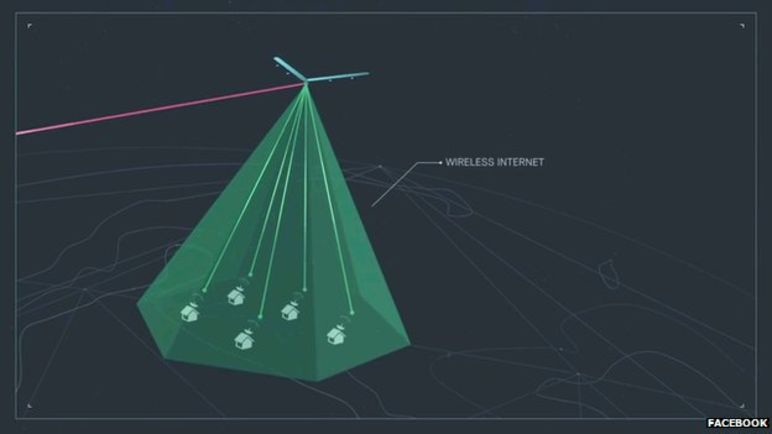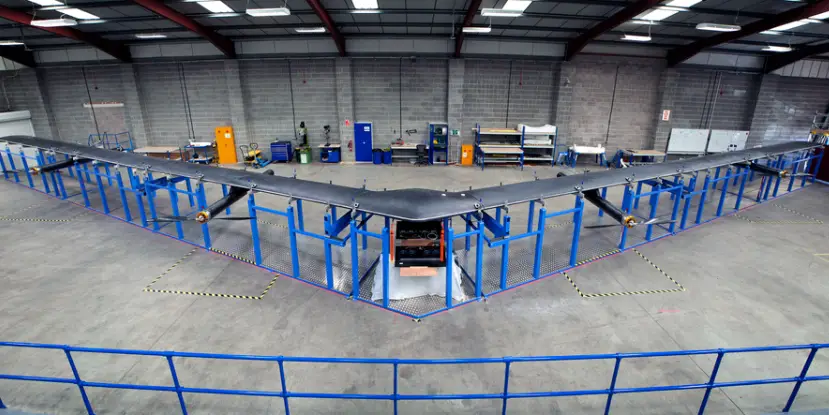Earlier this year, news broke that Facebook was toying with the idea of taking on Google in providing Internet access to those globally who have gone without. Unlike Google’s Project Loon, that uses large balloons to provide this Internet access, Facebook will be using specialized drones that pretty much look like mini stealth bombers.
However, these drones aren’t actually so mini. According to the announcement by Facebook, their Internet drones carry a wingspan that’s equivalent to that of a Boeing 737. These drones will stay airborne for 90 days at a time and will fly as high as 90,000 feet up. Facebook states that it will also be offering speeds up to 10GB per second and these drones will be tested in the United States within the next year.
According to Jay Parikh, Facebook’s vice president of global engineering and infrastructure, the drone itself was designed in the United Kingdom by Facebook’s aerospace team and is a part of a number of different techniques the social media giant is exploring.
“Our goal is to accelerate the development of a new set of technologies that can drastically change the economics of deploying internet infrastructure,” Mr Parikh said. “We are exploring a number of different approaches to this challenge, including aircraft, satellites and terrestrial solutions.”
However, Facebook doesn’t want to be in charge of these budding technologies and hopes to advance them enough for others to take charge.
“Our intention is not to build networks and then operate them ourselves,” Parikh said, “but rather to quickly advance the state of these technologies to the point that they become viable solutions for operators and other partners to deploy.”
As Facebook works to bring connectivity to the developing world, the social network will hopefully add more users and keep investors happy.
Parikh said the drone’s technology should be regarded as a “significant breakthrough.”
“They’ve designed and lab-tested a laser that can deliver data at 10s of Gb per second — approximately 10x faster than the previous state-of-the-art in the industry — to a target the size of a dime from more than 10 miles away,” he said. “We are now starting to test these lasers in real-world conditions. When finished, our laser communications system can be used to connect our aircraft with each other and with the ground, making it possible to create a stratospheric network that can extend to even the remotest regions of the world.”
Though, Facebook’s push to expand beyond it’s current markets has brought cynicism and raised eyebrows as to the company’s intentions. There were many in India’s tech community who were angered by Internet.org’s launch, the push to offer free mobile access to a small number of sites. Those angered include Internet companies in the country, stating that giving away free services creates an unfair advantage in the market. Another aspect questioned was Facebook’s monitoring of users who use the free service.
There’s no say when or if Facebook will actually fully implement this drone Internet service, but with Google and Facebook working on getting the globe connected, there’s a good chance that the Internet will see a number of new people at some point or another.
[button link=”http://www.bbc.com/news/technology-33728704″ icon=”fa-external-link” side=”left” target=”blank” color=”285b5e” textcolor=”ffffff”]Source: BBC[/button]Last Updated on November 27, 2018.











